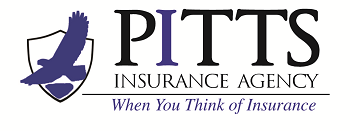Insurance can seem intimidating when looking at it from the outside, and a lot of that has to do with the amount of jargon in the industry. Instead of leaving you on your own to guess what something means, we have gathered* a list of words to help you when looking at small business insurance policies.
* The following definitions have been written by the National Association of Insurance Commissioners and Insurance Services Office Inc.
- Actual Cash Value – In most cases it is the cost to repair or replace the damaged property, minus depreciation.
- Additional Insured – A person or organization not automatically included as an insured under an insurance policy who is included or added as an insured under the policy at the request of the named insured.
- Admitted/ Non-Admitted Insurance Company – An admitted company is an insurance company licensed or authorized to sell insurance in a given state. Non-admitted insurance companies do not have the protection afforded by the state’s guaranty association.
- Assessed Value – Estimated value for real or personal property established by a taxing entity.
- Blanket – A single limit of insurance that applies over more than one location or more than one category of property coverage, or both.
- Business Interruption Insurance – AKA Business Income Coverage. Covers loss of income suffered by a business when damage to its premises by a covered cause of loss causes a slowdown or suspension of its operations.
- Business Personal Property – Typically, property you own that is used in your business.
- Business Owner’s Policy (BOP) – BOP stands for Business Owner’s Policy and is a policy providing both property and liability coverage for eligible small businesses.
- Certificate of Insurance – Proof of your insurance coverage.
- Commercial Package Policy – Provides a broad package of property and liability coverages for businesses other than those provided insurance through a Business Owner’s policy.
- Deductible – An amount the insurer will deduct from the loss before paying up to your policy limits.
- Depreciation – The decrease in the value of property over a period of time, usually as result of age or wear and tear from use.
- Directors and Officers Liability Insurance – A type of liability insurance covering directors and officers for claims made against them while serving on a board of directors and/or as an officer.
- Errors and Omissions Liability – Protects the insured against liability for committing an error or omission (negligence or mistake) in performance of professional duties.
- Hired and Non-Owned Auto Insurance Endorsement – Non-owned Auto Liability provides coverage for any auto that is not owned, borrowed or hired by the insured. Hired Auto Liability provides coverage for autos leased, hired or borrowed by the insured. This endorsement is typically not available to insureds who have a policy covering other commercial automobile exposures.
- Limit of Insurance – The most that will be paid by the insurer in the event of a covered loss under an insurance policy.
- Premium – The amount your business pays for insurance coverage.
- Professional Liability Insurance – Another name for errors and omissions insurance.
- Replacement Value – The cost to replace the damaged property with materials of like kind and quality, without any deduction for depreciation.
- Rider – This is an additional piece of coverage added onto a larger insurance policy. It may also be called an endorsement.
- Umbrella Insurance – A policy generally written over your primary liability policy which can serve the purpose of providing coverage when the limits under your primary policy are exhausted by the payment of claims or providing coverage where the primary policy leaves off or doesn’t cover.
- Workers’ Compensation Insurance – Insurance that covers an employer’s liability for injuries, disability or death to persons in their employment, without regard to fault, as prescribed by state or federal workers’ compensation laws and other statutes.
Insurance doesn’t have to be complicated– we are always here to help!
You can read the original blog post on the website of our provider, Guide One Insurance.

